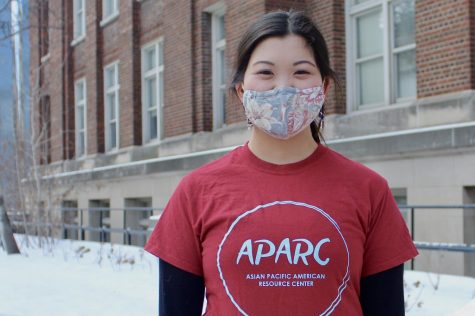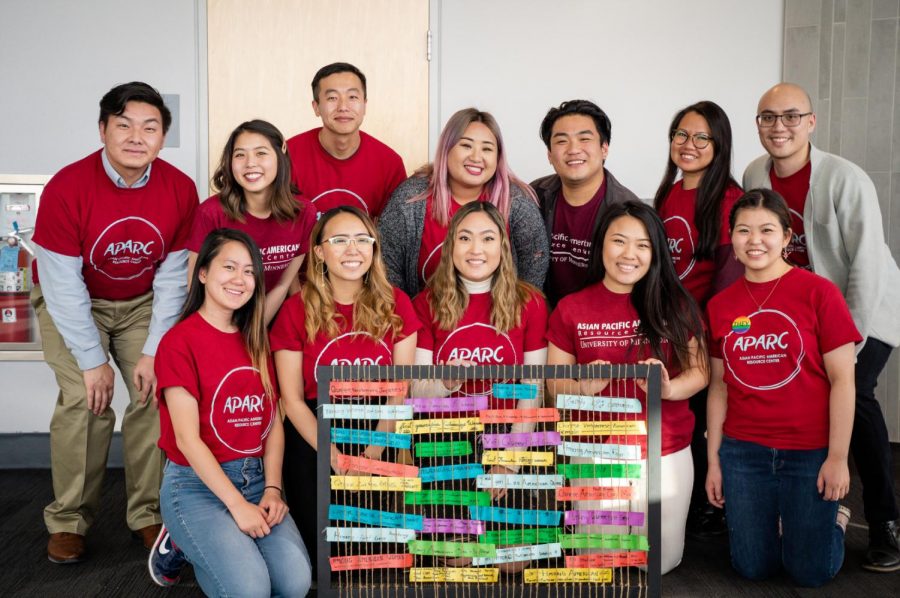On Feb. 25, the University of Minnesota’s Asian Pacific American Resource Center (APARC) will celebrate five years of supporting students’ academic success, cultivating a community space and creating programs to develop student leaders.
In 2016, the University received a five-year Asian American and Native American Pacific Islander-Serving Institution grant from the U.S. Department of Education that launched the center. The center is continuing its work with a renewed five-year grant from August 2020. The virtual celebration marks the fifth anniversary of the University’s designation as an Asian American and Pacific Islander-serving institution.
The celebration will feature student performances, acknowledgments and a presentation of the center’s plans for the future. Afterward, there will be a social and networking event for students and leaders in Asian American and Pacific Islander (AAPI) communities.
“This anniversary celebration isn’t just about celebrating APARC. It’s about celebrating AAPI students (current, past, and future) and our partners who have all made an impact on APARC,” Anne Nguyen, APARC marketing and communications student coordinator, said in an email.
Located in the University’s Appleby Hall, APARC has developed strong connections with students, community organizations and University departments over the years. Between 2016 and 2017, the center had 213 student visits, according to data collected by APARC. The center exceeded 3,000 visits between 2018 and 2019.
Kong Her, APARC program director, said he remembers that the first semester of APARC began in a shared office space that made it difficult to work directly with students. He worked with APARC staff on the fourth floor of Wulling Hall, which was out of view from students, he added.
Within a year, the College of Education and Human Development, the College of Liberal Arts and APARC created a dedicated space for the center in Appleby Hall that officially opened in November 2017.
“It’s been quite a journey to start with, like, literally nothing,” said Peter Limthongviratn, APARC program coordinator. “We had to buy our own supplies [and] use our loaner laptops for a while, and just slowly from having such a small space for ourselves and then growing into what we have today, it’s been a huge jump.”
The APARC space is currently closed because of the pandemic. However, APARC is continuing to support students through programming and using social media to maintain connections, Her said. Student engagement during the pandemic has been a major challenge for APARC and many student and community organizations.
Her said at the beginning of the pandemic, it was natural for everyone to attempt to replicate an in-person sense of community, but doing that online was not the same. He added that he realized it was crucial for him and other students to shift their focus to getting through the pandemic.
For the next five years, the grant will fund new initiatives to promote supporting students to thrive while in college and after college, Her said. He will highlight more details about the allocation of funds at the celebration.
“I’m excited to see the growth from year one to year five because I know Kong and Peter did a lot of work those first couple years,” said Haruka Yukioka, a fifth-year student and APARC student ambassador.

Last month, APARC developed a new leadership and mentorship program called ASPIRE LEADS. The program offers a new directed study course for student mentors on topics like Asian American literature, leadership, social justice and more. Mentors can gain two to three academic credits by participating in the course.
“One of the things that we’ve always said was that all of this work should be led and influenced by student voices and student experience,” Her said. “I think it’s important that it needs to come from students because this is all for supporting the AAPI communities, so their voices [are] especially important.”
APARC has to reapply for funding during the final years of the grant cycle, which Limthongviratn said puts the center at risk of not being funded for another five years. Last year, APARC faced financial uncertainty when a bill to renew federal funding for minority-serving institutions stalled in the U.S. Senate.
“I hope that at some point in the next five years, the University will finally try to invest more resources into APARC so that we can be institutionalized and that we’re not, like, working on this deadline,” Limthongviratn said.
Nguyen, the center’s student communications coordinator, said she has worked with APARC since her first year in college. Nguyen, who was initially on a different career path, said APARC influenced her decision to change her major to strategic communications with a minor in sociology.
“With my job at APARC, I really realized ‘Okay, I do have this creative side of me that’s not just a hobby. It’s something that comes so naturally easily to me that I really like,’” Nguyen said. “Honestly, if it wasn’t for APARC, I think I would still be on the track of pre-law right now.”
Devin Vue, a fourth-year student and APARC student coordinator, will be graduating this spring. In his role as a coordinator, Vue primarily focused on the mentorship program.
“I’ve been so humbled to just be a part of this community that I am kind of nervous and afraid of what’s to come after this,” Vue said. “I know that whenever I come back, I know APARC will always be my community. … I really am going to miss it since I have created a lot of memories and developed a lot of relationships through [APARC].”
Editor’s note: Haruka Yukioka is a member of the Minnesota Daily’s board of directors. The board does not dictate the coverage or content production of the Daily.



















